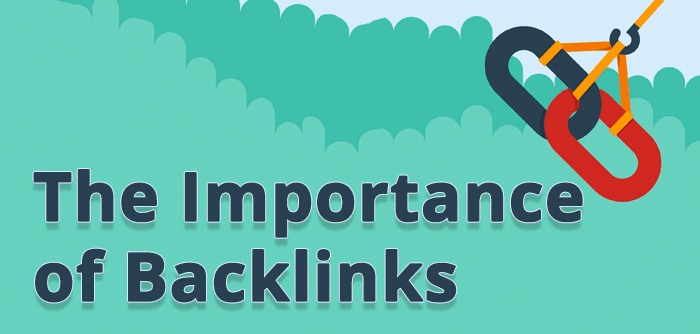Want more book sales on your website or eBay or Amazon pages? You must see the Rankers Paradise guide to SEO for authors and make it happen.
Search Engine Optimization (SEO) is no longer a term reserved for marketers and web developers. In today’s digital age, SEO is crucial for authors who want to increase their online visibility, reach a wider audience, and enhance their discoverability. This article serves as a comprehensive guide to understanding and implementing SEO strategies specifically tailored for authors.
Why Does SEO for Authors Matter?
Increasing Online Visibility
The internet is a vast ocean, and your work is a drop in it. SEO helps you make that drop visible to those who are looking for it.
Reaching a Wider Audience
With effective SEO, you can reach readers who are actively searching for content in your genre or subject matter, even if they haven’t heard of you before.
Enhancing Discoverability
SEO ensures that your work shows up in relevant searches, making it easier for potential readers to discover you and your books.
The Changing Landscape of Book Publishing
The publishing world has evolved, offering authors various platforms to publish their work. Whether you choose traditional or self-publishing, SEO is a tool you can’t afford to ignore.
Understanding SEO Basics
What is SEO?
SEO stands for Search Engine Optimization. It involves optimizing your online content so that search engines like Google can better understand it and rank it higher in search results.
How Search Engines Work
Search engines use algorithms to crawl the web, index content, and serve the most relevant results to users. Understanding these algorithms can give you an edge.
Importance of Keywords
Keywords are the terms that people use to search for content online. By optimizing your content for relevant keywords, you increase the chances of it being discovered.
Keywords: The Building Blocks of SEO
Keywords are essential for SEO. They serve as the bridge between what people are searching for and the content you provide.
- What are keywords?
Terms or phrases that describe your content. - How to find the right keywords?
Use tools like Google Keyword Planner or Ahrefs. - Tools for keyword research
Google Keyword Planner, Ahrefs, SEMrush.
On-Page SEO Strategies for Authors
Title Tags and Meta Descriptions
The title tag is the title of your webpage, and the meta description is a brief summary that appears below it in search results. Both should be optimized with keywords.
Header Tags (H1, H2, H3)
These are the headings and subheadings in your content. They should also contain relevant keywords.
Image Optimization
Images can also be optimized for SEO by adding alt text, which describes the image for search engines.
Blogging to Optimize Your Online Presence
Blogging is an excellent way for authors to engage with their audience and improve their SEO.
- Importance of blogging for authors
Regularly updated content is favored by search engines. - How to write SEO-friendly blog posts
Use keywords naturally, optimize images, and use header tags. - Guest blogging opportunities
Writing guest posts on reputable sites can provide valuable backlinks.
Off-Page SEO Techniques
What is Off-Page SEO?
Off-page SEO involves activities that occur away from your website but affect your search engine rankings, like backlinks from other sites.
Importance of Backlinks
Backlinks are links from other websites to yours. High-quality backlinks can significantly boost your SEO.

Social Media as an Off-Page SEO Tool
Social media platforms are an excellent way to promote your content and gain backlinks.
Author Interviews, Book Reviews, and Podcasts
These can provide valuable backlinks and increase your online presence.
- How these contribute to off-page SEO
They provide high-quality backlinks and increase your authority. - Where to find opportunities
Look for podcasts, blogs, or websites that align with your genre or subject matter.
SEO for Author Websites
Importance of Having an Author Website
An author website serves as a centralized platform where readers can find all your work, upcoming releases, and more.
SEO-Friendly Website Design
A well-designed, SEO-friendly website can significantly impact your search engine rankings.
WordPress Users: Using Yoast for SEO
Yoast is a popular SEO plugin for WordPress that can help you optimize your website easily.
Measuring SEO Success
Tools for Tracking SEO Performance
Google Analytics, SEMrush, and Ahrefs are excellent tools for tracking your SEO performance.
Key Performance Indicators (KPIs)
Metrics like organic traffic, bounce rate, and conversion rate can help you measure the success of your SEO efforts.
Adjusting Your SEO Strategy
SEO is not a one-time task but an ongoing process. Regularly review your performance and adjust your strategies accordingly.
FAQs
- What does SEO mean for writers?
It means optimizing your online content to increase its visibility in search engine results. - How to do SEO for books?
Optimize the book title, description, and online listings with relevant keywords. - What is SEO in book publishing?
It involves optimizing the online presence of your book to improve its discoverability. - How do you use SEO in content writing?
Use relevant keywords naturally throughout the content, optimize meta tags, and use header tags.
Conclusion
SEO is an indispensable tool for authors in the digital age. By understanding and implementing the strategies outlined in this article, you can significantly boost your online presence and reach a wider audience.
Additional Resources
For those interested in diving deeper into SEO, here are some additional resources: